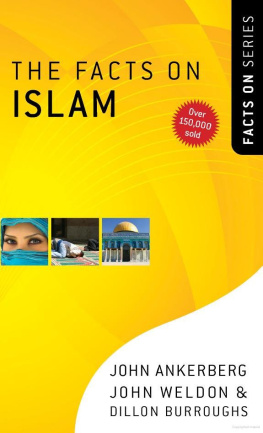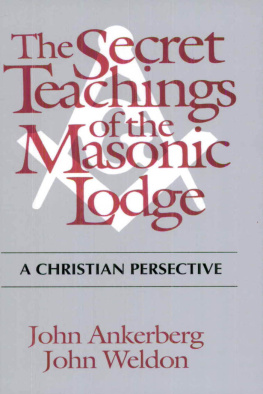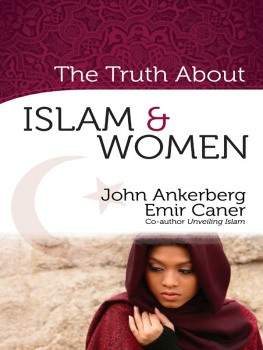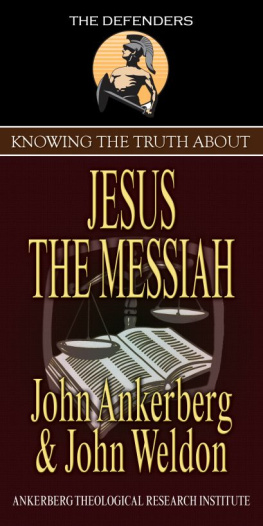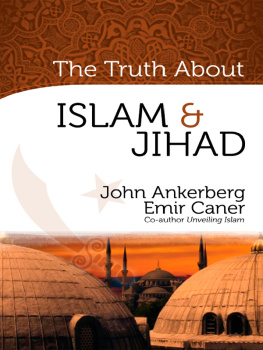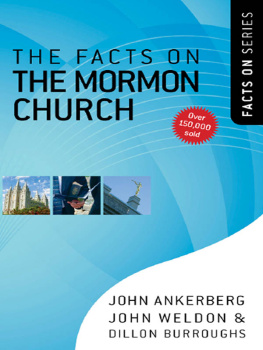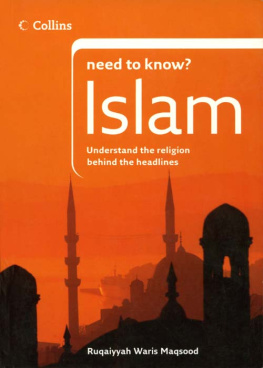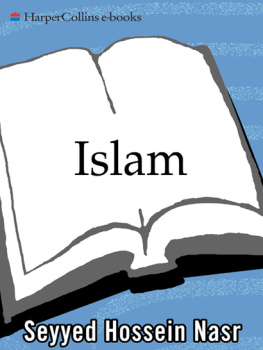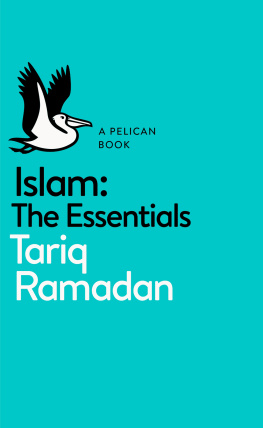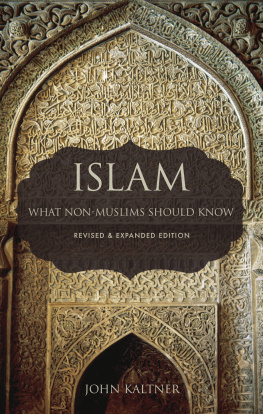JOHN ANKERBERG
JOHN WELDON &
DILLON BURROUGHS





......... 5
Section One
The Religion of Islam-Introduction
............................... 11
............................... 17
Section Two
The Theology of Islam-Is It Compatible with Christian Belief?
........ 23
Section Three
The Bible of Islam-Is the Qur'an the Word of God?
.......... 51
... 56
Section Four
Islam-A General Critique
.......... 64
......... 70
Section Five
The Accuracy of the New Testament Text
............... 75
................. 84
....................... 87
....................................... 89
Apart from Christianity, Islam is probably the most influential religion on earth. It is the second-largest religion in the world, with between 1 and 1.5 billion followers worldwide. Islam may be the fastest-growing religion in the world; whether it eclipses Christianity is uncertain. In addition, a powerful resurgence of Islamic fundamentalism radicalism continues to spread the Muslim faith into more moderate Islamic nations.
What is the difference between the terms Islam and Muslim?
Islam is the correct name for the religion that the Muslim prophet Muhammad claimed God (Allah) revealed to him through the angel Gabriel. The name Islam is derived from the infinitive of the Arabic verb "to submit" (to Allah's will). Muslim is the correct term for a follower of Islam and comes from the present participle of the same verb.'
More than any other single factor, the followers of Islam have their lives directed by the book they believe is the Word of God-the Qur'an. Dr. J. Christy Wilson of Princeton University comments, "Next to the Bible, it is the most esteemed and most powerful book in the world."' Whatever Muslims believe and do, it is the teachings in the Qur'an that have inspired these beliefs and actions. This is why no one should underestimate its importance.
The book you hold serves two purposes. First, it supplies a critique of Islam from the perspective of history and Christian faith. Second, it's designed to encourage those familiar with this information to seek appropriate and effective ways of communicating with their Muslim friends. The material in this book is introductory-primarily to inform Christians and nonMuslims about Islam as it relates both to Christian and Muslim truth claims.
Regrettably, Muslims often have a number of unfortunate misunderstandings concerning Christianity. Muslims may also be very sensitive to even valid criticisms about Islam, the Qur'an, or Muhammad, so dialogue can be difficult. Help on effectively relating to Muslims can be found in the resources listed at the end of this book. We emphasize that any Christian desiring to help Muslims spiritually will find it helpful to continue studies in this area.
Nevertheless, a good English translation does provide sufficiently accurate meanings of the original. The translations we have chosen to cite are
that of A.J. Arberry, which in the words of Wilfred Cantwell Smith of Harvard University, is "the one that comes closest to conveying the impression made on the Muslims by the original";3
that of the Iranian scholar N.J. Dawood, director of Contemporary Translation Limited and managing director of the Arabic Advertising and Publishing Company, Ltd., London;
that of J.M. Rod well, which "has been declared by modern scholars to be one of the best translations ever produced";5
and that by Abdullah Yusuf Ali, called The Holy Quran, widely used among American Muslims and considered by them to be among the best of translations.
Indeed, "some Muslims are prepared to commend the accuracy of the best of these translations, and to admit their value as interpretation, though not official interpretation, of the meaning of the sacred text."6
Finally, it should be noted that the different traditions of Islam (such as Sunni, Shi'ite, and Sufi) have, correspondingly, quite different interpretations of the Qur'an.
Islam is the world religion founded by an Arabian visionary named Muhammad (about AD 570-632; also spelled Muhammed or Mohammed), who was born in the city of Mecca in what is now Saudi Arabia. Muhammad claimed he received supernatural revelations from God through the angel Gabriel. These revelations were written down by others and compiled into a book called the Qur'an, the Muslim Bible (also spelled Koran).
Today, Islam is comprised of two principal schoolsthe majority Sunni school (90 percent) and the minority Shi'ite school (10 percent). In addition, there are millions of Muslim mystics called Sufis. In America, Muslim influence is seen in traditional Islam as well as the Black Muslim movement.' It is commonly believed there are now as many as five to eight million Muslims in America. A number of authorities place the number more accurately at around two million; whatever the exact number, it will apparently continue to expand for the foreseeable future.'


Islam is important for the following reasons. First, there are over one billion followers of Islam in the world. Second, the collective power of Islam is able to dramatically influence the world economy through OPEC, especially with oil at over $100 a barrel at present and expected to remain at high levels. Or, its minority radical side, through major terror attacks such as 9/11, in addition to the loss of life and the resulting worldwide war on terror, has wreaked destruction that will soon exceed a trillion dollars in direct and indirect costs. Third, the growing religious influence of Islam outside traditionally Islamic nations such as in Europe and Africa is unmistakable. Fourth, Islam has the ability to play a key role in the social stability or instability of dozens of governments around the world. Fifth, minority radical Islamism constitutes the leading antidemocratic force in the world, and a principal goal of much if not all of Islam is to bring Islamic law (Shari'a law) to every nation.'

